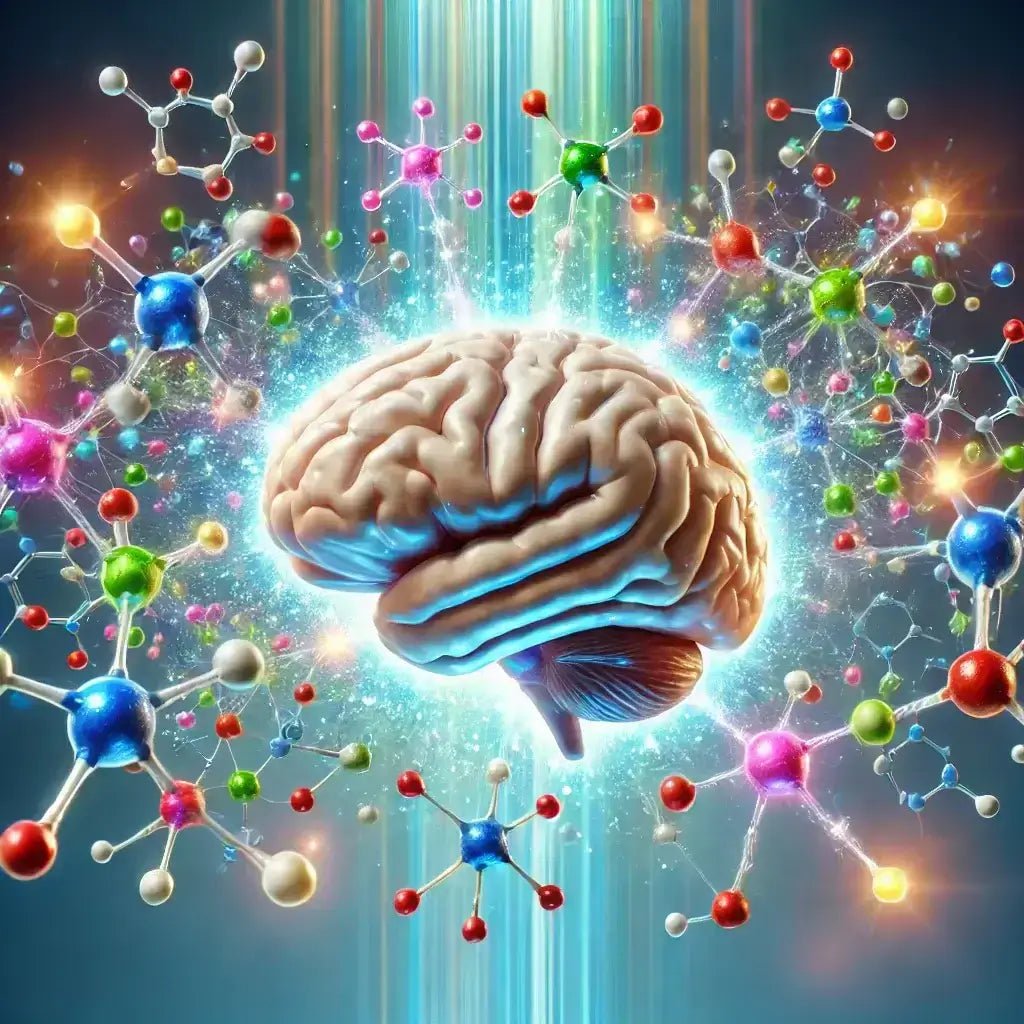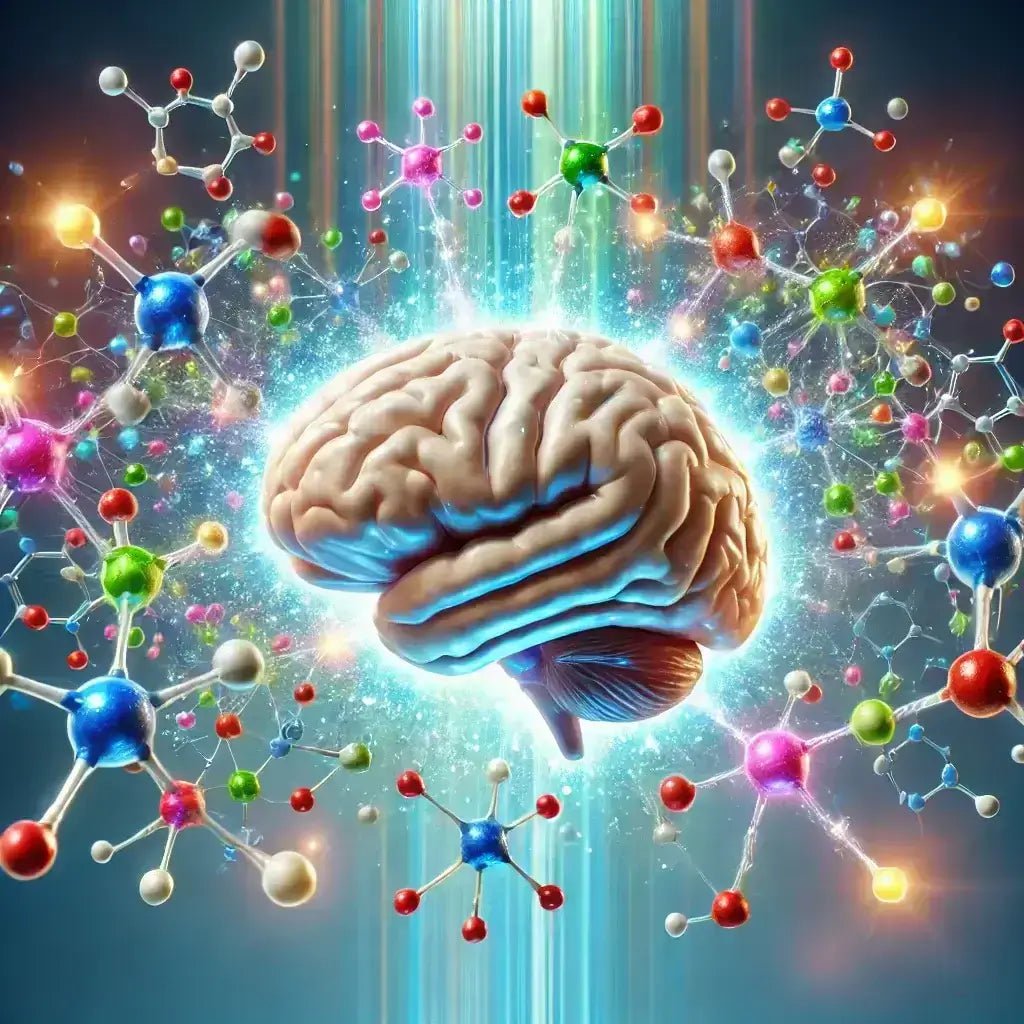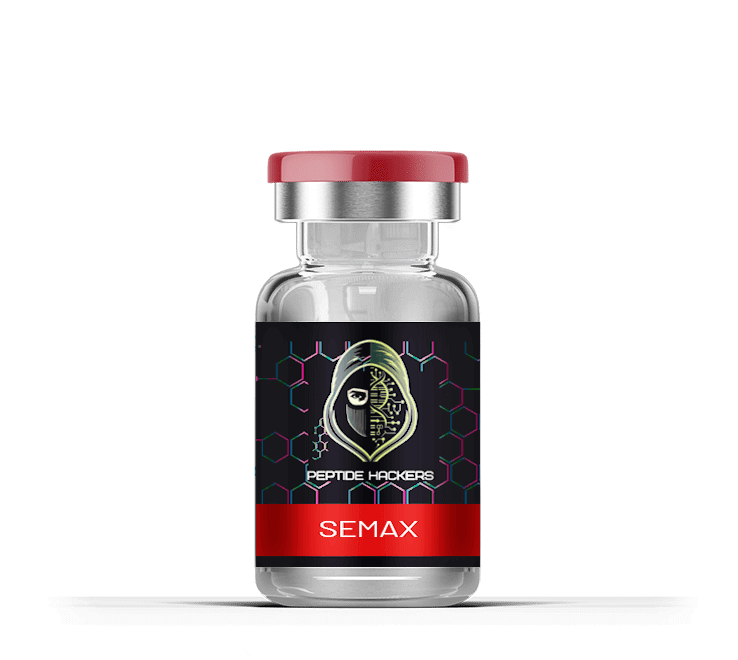The Role of Peptides in Neuroprotection and Brain Health

Nootropic Peptides: A Detailed Guide to the Cognitive Powerhouse for the Modern Age
Have you ever wondered how some people are able to keep laser-like focus while working on at least a million different projects, or how certain people also can remain clear-thinking into their golden years? And the answer may simply lie in nootropic peptides – nature's very own brain-boosting molecules that are changing the game when it comes to cognitive enhancement.
What Are Nootropic Peptides? (And Why Your Brain Craves Them)
Let's decipher the science speak. Nootropic peptides are in essence small fragments of protein which acts as a precision tool for your brain. Consider them as specialized delivery trucks that not only make it past the notoriously picky blood-brain barrier, but also improve your cognitive function once they arrive. Peptide nootropics are not your ordinary nootropics or "smart drugs," as they support your brain's natural chemistry rather than fighting it.
The reason why nootropic peptides are so exciting is because they work on two levels—they protect your brain cells, and they improve performance at the same time. It's as if you've hired a personal trainer and bodyguard for your neurons, all in one microscopic package.
The 5 Best Nootropic Peptides That Are Changing the Game for Your Brain
1. Semax: The Russian Nootropic Secret Used by Olympians to Dominate Awards Podiums
Semax was developed by Russian scientists (who, let's be real, have some experience pushing the limits of human potential) and it remains the gold standard of nootropic peptides. Here's what makes it special:
- Brain Boost: Users describe feeling like their brain is upgraded when they use Semax – they will remember information better and be able to recall it faster
- Laser Sharp Focus: Enjoy focus without getting jittery - experience it for yourself!
- Neuroprotection Plus: Doesn't just make you smarter today, it protects your brain for tomorrow
- Improved Mood: Most users report a mild elevation in mood, less of a high and more of a sense of well-being.
2. Selank: And The Anxiolytic Nootropic That You (Probably) Haven't Heard Of
If Semax were the go-go dancer of nootropic peptides, then certainly Selank is the zen mistress. This incredible formula provides:
- Zen Focus: Picture meditating and working out a puzzle simultaneously – that's Selank
- Improved Learning: It increases BDNF (your brain's growth hormone) which is known to make learning easier.
- No Brain Fog: Unlike anti-anxiety meds that dull your thoughts, Selank keeps you sharp
- Memory Consolidation: Great for students, or anyone learning new material
3. Cerebrolysin: The Heavyweight Champion of Brain Peptides
This certainly isn't your mother's nootropic peptide – Cerebrolysin is the equivalent of sending in the navy seals for your brain:
- Strong Neuroprotection: Protects neurons from oxidative damage, excitoxicity, and premature death
- Increases Neurogenesis: Literally helps generate new brain cells (yes, you read that right!)
- Clinical validation: Under intense investigation in Alzheimer disease and in stroke recovery
- Enhanced Memory: Supports healthy memory and cognition fluctuations (memory and cognition are not static)
4. BDNF (Brain-Derived Neurotrophic Factor): Your Brain's Growth Factor
Not exactly a nootropic peptide that you'd be supplementing directly, but other peptides can influence BDNF levels:
- Neural Plasticity: It's like you keep your brain young and adaptable
- Learning and Memory: Crucial in the conversion of short-term to long-term memory
- Depression Fighter: Low levels of BDNF are associated with depression; increasing it can improve your mood
- Learning Booster: Increased BDNF = Faster learning of new things
5. Thymosin Beta-4: The Brain's Repair Mechanism
Often omitted in discussions of nootropics, TB4 should have at least an honorable mention:
- Inflammation Management: Cools inflammation that may negatively affect cognitive functioning
- Neural Repair: Assists in repairing damaged brain tissue
- Brain Recovery: Especially useful post brain injury or chronic stress
- Long-term Brain Health: Helps support overall neural protection
How Nootropic Peptides Work: The Science Explained Simply
This is where nootropic peptides become interesting. Rather than bombard your brain with artificial chemicals, they engage in more subtle processes:
1. Neurotransmitter Optimizing
Nootropic peptides enhance your brain's neurotransmitters. They don't flood your system with dopamine or serotonin; they help your brain make better use of what it has.
2. Oxidative Stress Shield
Your brain accounts for 20% of your body's oxygen, which in turn generates tons of free radicals. Nootropic peptides are like little antioxidant shields that shield your neurons from this oxidative damage.
3. Inflammation Reduction
Chronic brain inflammation is like trying to think through molasses. These peptides aid in clearing that inflammation, and this cleaner thought process leads to clearer, faster thinking.
4. Neuroplasticity Boost
And the most exciting of all, nootropic peptides encourage the growth of new neurons and connections. Your brain actually becomes more capable of learning and adapting.
The Real-World Uses of Nootropic Peptides
For Students and Learners
- Faster information processing
- Better memory retention
- Reduced test anxiety
- Restored concentration during extended study periods
For Professionals
- Better at juggling tasks
- More calm under pressure
- Better at problem-solving and being creative
- Long lasting focus without the crash
For Aging Adults
- Preventative of cognitive decline
- Maintained mental sharpness
- Better mood and motivation
- Possible defence against neurodegenerative illnesses
For Biohackers and Optimizers
- Peak cognitive performance
- Faster mental recovery
- Enhanced brain resilience
- Stacking potential with other nootropics
The Nootropic Peptide Edge: What Makes Them Not the Same?
It's that traditional nootropics often function like a sledgehammer — powerful, but blunt as well. Nootropic peptides are something more akin to precision instruments:
- Natural Affinity: They speak the language your brain does
- Very Little in the Way of Side Effects: If used in the right way, they're very well tolerated
- The Long Run: More than immediate effects, brain protection for years to come
- Complementary Effects: They are even better together than when used independently
Selecting the Ideal Nootropic Peptide for Your Objectives
Not all nootropic peptides are the same. Here's a quick guide:
- Need laser focus? → Semax is your go-to
- Struggling with anxiety when you have to get up and do something? → Selank shines here
- Searching for total brain coverage? → The linebacker in this weight class is cerebrolysin
- Want the best overall brain optimization? → Try Both Together
Nootropic Peptides of the Future
We're only just beginning to explore the potential of nootropic peptides. Researchers are exploring:
- Novel combinations of peptides for increasing effects
- Delivery system may aid absorption
- Genetically based personalized peptide protocols
- Use in the Treatment of Severe Neurological Diseases
How to Get the Most Out of Nootropic Peptides
Achieving results with nootropic peptides is not only about taking them, it's about setting the stage and environment for them to produce good effect:
- Spotlight Quality: Every peptides are different. Do your homework on your sources.
- Do It All the Time: These are not miracle pills for use once or twice and then forgotten about. Regular use for better effect.
- Stack smart: A lot of nootropic peptides work rather well when stacked, but you should know what you're doing.
- Feed Your Brain: Peptides work better when combined with good sleep, nutrition and exercise.
The Final Say on Nootropic Peptides
Now, let's face it: We all want peak brain performance! We all want to be able to crush that exam, crush that presentation, or just stay sharp as we age. They are not in the range of "smart drugs" but something much more advanced and backed by science.
They're not magic bullets, but they're very close to precision ammunition for your cognitive arsenal. Nootropic peptides are poised to be the gold standard for brain function optimization and brain health as new discoveries find applications in years to come.
Think about it, your brain is your most important organ. Investing in its health and well-being with nootropic peptides might be the smartest choice you'll ever make.
Disclaimer: The following information about nootropic peptides is for educational purposes only. Peptide Hackers sells peptides as research reagents and not intended for human use. These products are sold for research and laboratory use only. The therapeutic application of these nootropic peptides should only be considered under adequate medical supervision and according to legal regulation. You should always speak to a healthcare professional before taking any cognitive enhancers.


